-
 bitcoin
bitcoin $87959.907984 USD
1.34% -
 ethereum
ethereum $2920.497338 USD
3.04% -
 tether
tether $0.999775 USD
0.00% -
 xrp
xrp $2.237324 USD
8.12% -
 bnb
bnb $860.243768 USD
0.90% -
 solana
solana $138.089498 USD
5.43% -
 usd-coin
usd-coin $0.999807 USD
0.01% -
 tron
tron $0.272801 USD
-1.53% -
 dogecoin
dogecoin $0.150904 USD
2.96% -
 cardano
cardano $0.421635 USD
1.97% -
 hyperliquid
hyperliquid $32.152445 USD
2.23% -
 bitcoin-cash
bitcoin-cash $533.301069 USD
-1.94% -
 chainlink
chainlink $12.953417 USD
2.68% -
 unus-sed-leo
unus-sed-leo $9.535951 USD
0.73% -
 zcash
zcash $521.483386 USD
-2.87%
How to identify the head and shoulders top pattern? How to leave the market after the right shoulder is formed?
The head and shoulders top pattern, signaling a bearish reversal in crypto, forms after an uptrend with three peaks: left shoulder, head, and right shoulder.
Jun 09, 2025 at 12:42 pm

The head and shoulders top pattern is one of the most reliable and widely recognized chart patterns in technical analysis within the cryptocurrency market. This pattern signals a potential reversal from a bullish trend to a bearish one. In this article, we will delve into the specifics of identifying the head and shoulders top pattern and provide a detailed guide on how to exit the market after the right shoulder is formed.
Understanding the Head and Shoulders Top Pattern
The head and shoulders top pattern consists of three peaks, with the middle peak (the head) being the highest and the two outer peaks (the left and right shoulders) being roughly equal in height. This pattern forms after a prolonged bullish trend and indicates that the trend may be losing momentum and that a bearish reversal is imminent.
The formation of the head and shoulders top pattern can be broken down into several key components:- Left Shoulder: This is the first peak in the pattern, formed after an uptrend. It is followed by a decline, which leads to the formation of the neckline.
- Head: The head is the second and highest peak. It forms after the left shoulder and is followed by another decline back to the neckline.
- Right Shoulder: The right shoulder is the third peak, which is typically at or slightly below the level of the left shoulder. After the right shoulder forms, the price usually declines to the neckline again.
- Neckline: The neckline is drawn by connecting the low points after the left shoulder and the head. It can be horizontal or slightly sloped.
Identifying the Head and Shoulders Top Pattern
To accurately identify a head and shoulders top pattern in the cryptocurrency market, you must pay close attention to the following steps:
- Observe the trend: The pattern should form after a clear and prolonged uptrend. This ensures that the pattern is a potential reversal signal rather than a continuation pattern.
- Identify the left shoulder: Look for the first peak in the uptrend. This peak should be followed by a decline that forms the first low point.
- Spot the head: The head should be the highest peak in the pattern, surpassing the height of the left shoulder. After the head forms, the price should decline to the level of the first low point, creating the second low point.
- Recognize the right shoulder: The right shoulder should form at a level similar to the left shoulder. After the right shoulder peaks, the price should decline once more to the neckline.
- Confirm the neckline: Draw a line connecting the two low points after the left shoulder and the head. This line is the neckline, and it is crucial for confirming the pattern.
Confirming the Pattern
Confirmation of the head and shoulders top pattern occurs when the price breaks below the neckline. This break should be accompanied by increased trading volume, which adds to the reliability of the signal.
- Watch for the neckline break: A decisive break below the neckline is the primary confirmation signal. The break should be clear and not just a minor dip.
- Check the volume: Increased trading volume during the neckline break adds credibility to the pattern. It indicates that more traders are selling, which can accelerate the bearish reversal.
- Measure the target: The potential price target for the bearish move can be estimated by measuring the distance from the head to the neckline and projecting it downward from the point where the neckline is broken.
Exiting the Market After the Right Shoulder is Formed
Once the right shoulder of the head and shoulders top pattern is formed, it is crucial to prepare for exiting the market to minimize potential losses. Here is a detailed guide on how to leave the market after the right shoulder is formed:
Monitor the price action: After the right shoulder forms, closely watch the price action as it approaches the neckline. This is a critical point where the pattern will either be confirmed or invalidated.
Set a stop-loss order: Place a stop-loss order just below the neckline. This order will automatically execute if the price breaks below the neckline, ensuring that you exit the market before significant losses occur.
- To set a stop-loss order on a cryptocurrency exchange:
- Log into your trading account.
- Navigate to the trading interface for the cryptocurrency pair you are holding.
- Select the 'Stop-Loss' option from the order types.
- Enter the price just below the neckline as the stop-loss level.
- Confirm the order.
- To set a stop-loss order on a cryptocurrency exchange:
Execute a sell order: If you prefer to manually exit the market, place a sell order as soon as the price breaks below the neckline. This requires constant monitoring of the price action.
- To manually execute a sell order:
- Log into your trading account.
- Navigate to the trading interface for the cryptocurrency pair you are holding.
- Select the 'Sell' option from the order types.
- Enter the current market price or a slightly lower price to ensure immediate execution.
- Confirm the order.
- To manually execute a sell order:
Consider a trailing stop: If you are unsure about the exact point to exit, you can use a trailing stop order. This type of order adjusts automatically as the price moves, allowing you to capture more profit if the price continues to rise before breaking the neckline.
- To set a trailing stop order:
- Log into your trading account.
- Navigate to the trading interface for the cryptocurrency pair you are holding.
- Select the 'Trailing Stop' option from the order types.
- Set the trailing amount as a percentage or a fixed amount below the current market price.
- Confirm the order.
- To set a trailing stop order:
Handling False Breakouts
False breakouts can occur when the price briefly breaks below the neckline but then quickly recovers above it. To handle such scenarios effectively:
- Wait for confirmation: Do not rush to exit the market immediately upon a neckline break. Wait for a clear and sustained move below the neckline to confirm the pattern.
- Use candlestick patterns: Look for bearish candlestick patterns, such as bearish engulfing or shooting star, to confirm the bearish reversal.
- Monitor volume: Ensure that the volume during the neckline break is significantly higher than average, as this increases the likelihood of a true breakout.
Adjusting to Market Conditions
Market conditions can affect the reliability of the head and shoulders top pattern. Here are some considerations to keep in mind:
- Volatility: In highly volatile markets, the pattern may form more quickly, and the price movements may be more exaggerated. Adjust your stop-loss and target levels accordingly.
- Liquidity: In less liquid markets, the pattern may take longer to form, and the price movements may be less pronounced. Be patient and adjust your expectations for the pattern's completion.
- Market sentiment: Pay attention to overall market sentiment, as it can influence the effectiveness of the pattern. If the market is overwhelmingly bullish, the head and shoulders top pattern may be less reliable.
Frequently Asked Questions
Q: Can the head and shoulders top pattern form in a downtrend?A: The head and shoulders top pattern is typically a reversal pattern that forms after an uptrend. However, a similar pattern, known as the inverse head and shoulders, can form at the end of a downtrend, signaling a potential reversal to an uptrend.
Q: How long does it take for a head and shoulders top pattern to form?A: The duration of the head and shoulders top pattern can vary significantly, ranging from a few weeks to several months. The time frame depends on the overall market conditions and the specific cryptocurrency being analyzed.
Q: Is the head and shoulders top pattern always reliable?A: While the head and shoulders top pattern is considered one of the most reliable reversal patterns, it is not infallible. False breakouts and market volatility can affect its accuracy. It is essential to use additional technical indicators and market analysis to confirm the pattern.
Q: Can the head and shoulders top pattern be used for short-term trading?A: Yes, the head and shoulders top pattern can be used for short-term trading, especially if you are trading on shorter time frames such as hourly or 4-hour charts. However, the pattern may be less reliable on shorter time frames, and it is crucial to use additional confirmation signals.
Disclaimer:info@kdj.com
The information provided is not trading advice. kdj.com does not assume any responsibility for any investments made based on the information provided in this article. Cryptocurrencies are highly volatile and it is highly recommended that you invest with caution after thorough research!
If you believe that the content used on this website infringes your copyright, please contact us immediately (info@kdj.com) and we will delete it promptly.
- Vitalik Buterin Rethinks Ethereum's Future: L2s Evolve Beyond Shards as Ethereum Scales
- 2026-02-04 15:35:01
- Ozak AI Fuels Network Expansion with Growth Simulations, Eyeing Major Exchange Listings
- 2026-02-04 12:50:01
- From Digital Vaults to Tehran Streets: Robbery, Protests, and the Unseen Tears of a Shifting World
- 2026-02-04 12:45:01
- Bitcoin's Tightrope Walk: Navigating US Credit Squeeze and Swelling Debt
- 2026-02-04 12:45:01
- WisdomTree Eyes Crypto Profitability as Traditional Finance Embraces On-Chain Innovation
- 2026-02-04 10:20:01
- Big Apple Bit: Bitcoin's Rebound Hides a Deeper Dive, Say Wave 3 Watchers
- 2026-02-04 07:00:03
Related knowledge
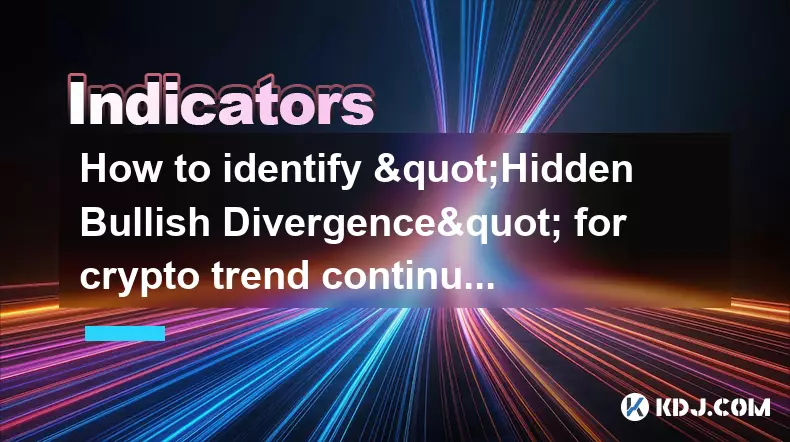
How to identify "Hidden Bullish Divergence" for crypto trend continuation? (RSI Guide)
Feb 04,2026 at 05:19pm
Understanding Hidden Bullish Divergence1. Hidden bullish divergence occurs when price forms a higher low while the RSI forms a lower low — signaling u...
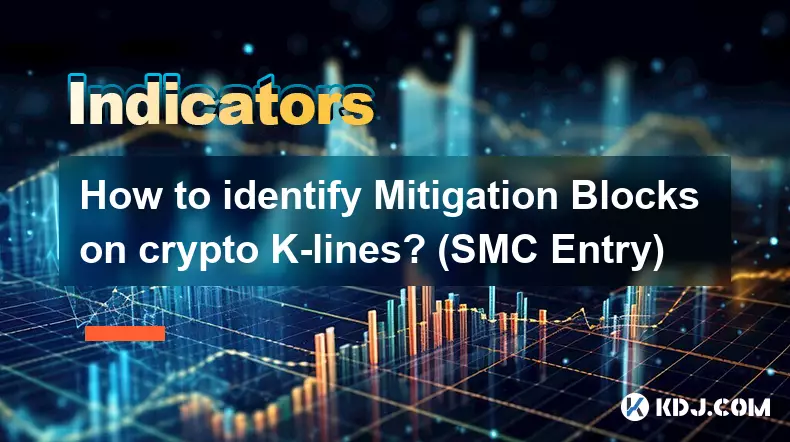
How to identify Mitigation Blocks on crypto K-lines? (SMC Entry)
Feb 04,2026 at 04:00pm
Understanding Mitigation Blocks in SMC Context1. Mitigation Blocks represent zones on a crypto K-line chart where previous imbalance or liquidity has ...

How to use the Net Unrealized Profit/Loss (NUPL) for Bitcoin tops? (On-chain Indicator)
Feb 04,2026 at 04:20pm
Understanding NUPL Mechanics1. NUPL is calculated by subtracting the total realized capitalization from the current market capitalization, then dividi...
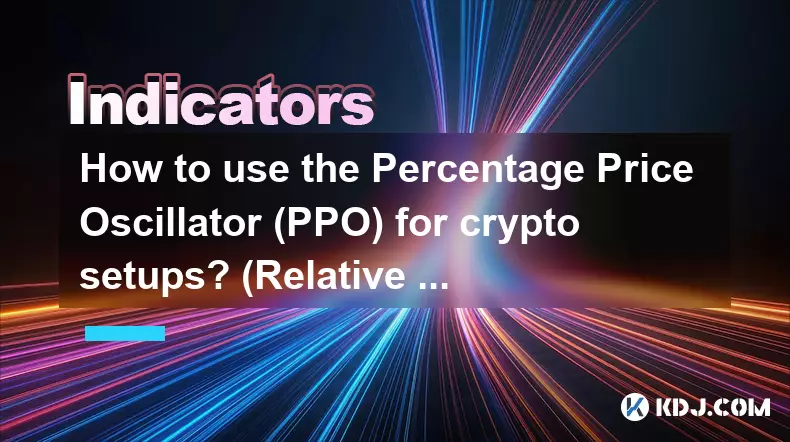
How to use the Percentage Price Oscillator (PPO) for crypto setups? (Relative Strength)
Feb 04,2026 at 06:40pm
Understanding the Percentage Price Oscillator Structure1. The Percentage Price Oscillator calculates the difference between two exponential moving ave...
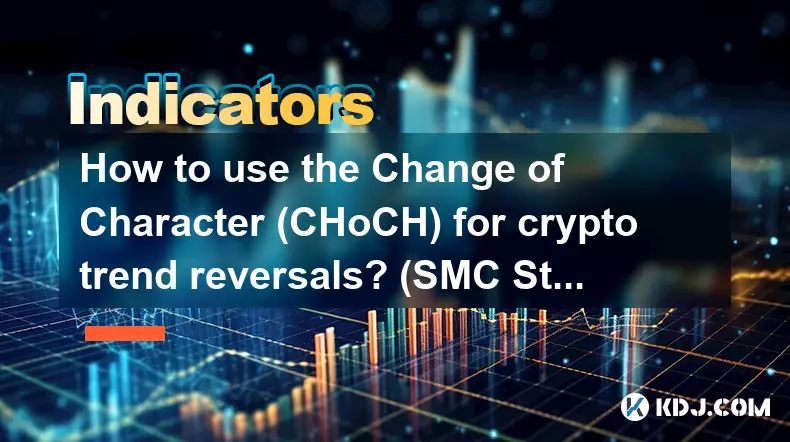
How to use the Change of Character (CHoCH) for crypto trend reversals? (SMC Strategy)
Feb 04,2026 at 04:59pm
Understanding CHoCH in the Context of SMC1. CHoCH stands for Change of Character, a core concept within the Smart Money Concepts framework used by ins...
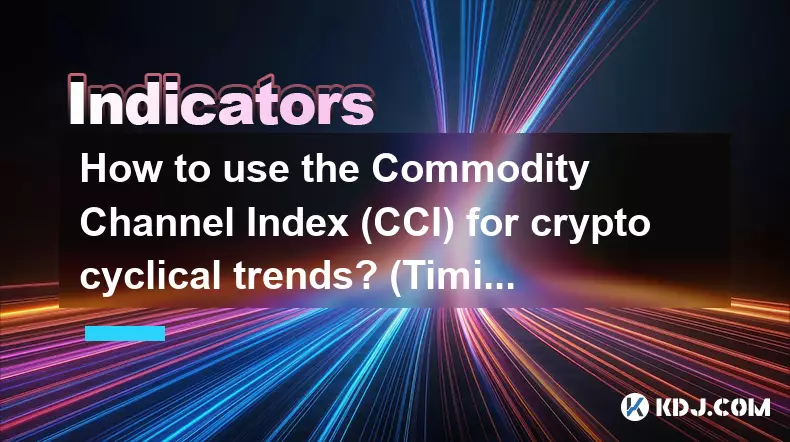
How to use the Commodity Channel Index (CCI) for crypto cyclical trends? (Timing)
Feb 04,2026 at 02:59pm
Understanding CCI Mechanics in Volatile Crypto Markets1. The Commodity Channel Index measures the current price level relative to an average price ove...

How to identify "Hidden Bullish Divergence" for crypto trend continuation? (RSI Guide)
Feb 04,2026 at 05:19pm
Understanding Hidden Bullish Divergence1. Hidden bullish divergence occurs when price forms a higher low while the RSI forms a lower low — signaling u...

How to identify Mitigation Blocks on crypto K-lines? (SMC Entry)
Feb 04,2026 at 04:00pm
Understanding Mitigation Blocks in SMC Context1. Mitigation Blocks represent zones on a crypto K-line chart where previous imbalance or liquidity has ...

How to use the Net Unrealized Profit/Loss (NUPL) for Bitcoin tops? (On-chain Indicator)
Feb 04,2026 at 04:20pm
Understanding NUPL Mechanics1. NUPL is calculated by subtracting the total realized capitalization from the current market capitalization, then dividi...

How to use the Percentage Price Oscillator (PPO) for crypto setups? (Relative Strength)
Feb 04,2026 at 06:40pm
Understanding the Percentage Price Oscillator Structure1. The Percentage Price Oscillator calculates the difference between two exponential moving ave...

How to use the Change of Character (CHoCH) for crypto trend reversals? (SMC Strategy)
Feb 04,2026 at 04:59pm
Understanding CHoCH in the Context of SMC1. CHoCH stands for Change of Character, a core concept within the Smart Money Concepts framework used by ins...

How to use the Commodity Channel Index (CCI) for crypto cyclical trends? (Timing)
Feb 04,2026 at 02:59pm
Understanding CCI Mechanics in Volatile Crypto Markets1. The Commodity Channel Index measures the current price level relative to an average price ove...
See all articles










































































